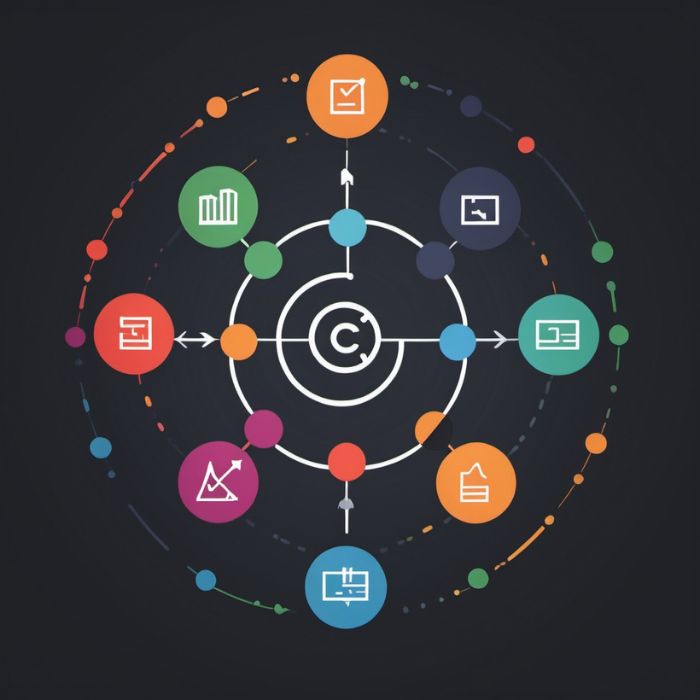Best Marketing Automation Tools for Businesses in 2025
Marketing automation has evolved from simple email sequences to AI-powered customer journeys. The right tool can increase conversions by 50%+ while saving dozens of work hours monthly.
This guide compares the top marketing automation platforms in 2025, helping you choose based on:
✔ Business size ✔ Budget ✔ Key features
Quick Links:
-
Quick Comparison Table (Jump to overview)
Table of Contents
Why Use Marketing Automation?
Modern tools go beyond email to handle:
• Lead scoring & segmentation
• Multi-channel campaigns (email+SMS+social)
• Behavioral triggers (e.g., cart abandonment)
• AI-powered personalization
New to automation? Learn the fundamentals here.
Quick Comparison Table
| Tool | Best For | Starting Price | Key Strength | Free Plan? |
|---|---|---|---|---|
| HubSpot | All-in-one solution | $45/month | CRM integration | Yes (limited) |
| Marketo | Enterprises | $1,995/month | Complex workflows | No |
| ActiveCampaign | SMBs | $29/month | Visual automation builder | Yes (14-day trial) |
| GetResponse | Ecommerce | $19/month | Autofunnels + webinar tools | Yes |
| Pardot | B2B companies | $1,250/month | Salesforce integration | No |
Want to automate other business processes? See our productivity tools.
Best Marketing Automation Tools (In-Depth Review)
1. HubSpot: Best All-in-One Marketing Automation
Why Choose HubSpot?
HubSpot dominates with its seamless CRM integration and user-friendly interface.
2025 Key Features:
-
AI Content Assistant (generates emails/landing pages)
-
Predictive lead scoring
-
Omnichannel campaign designer
-
Revenue attribution reporting
Pros:
✅ Intuitive drag-and-drop builder
✅ 1,400+ app integrations
✅ Free CRM included
Cons:
❌ Expensive at higher tiers
❌ Advanced features require training
See how HubSpot compares to other CRMs.
2. Marketo Engage: Best for Enterprise-Level Automation
Why Choose Marketo?
Adobe’s Marketo handles complex, global campaigns for Fortune 500 companies.
2025 Upgrades:
-
AI-powered audience expansion
-
B2B advertising orchestration
-
Account-based marketing (ABM) tools
Pros:
✅ Handles 1M+ contacts effortlessly
✅ Deep Salesforce integration
✅ Advanced attribution modeling
Cons:
❌ Requires dedicated admin
❌ Minimum $24,000/year commitment
3. ActiveCampaign: Best for Small & Medium Businesses
Why Choose ActiveCampaign?
Combines affordability with enterprise-grade automation.
Standout 2025 Features:
-
Customer journey mapping
-
Site/event tracking
-
SMS automation
-
Built-in CRM
Pros:
✅ 90% cheaper than Marketo
✅ 850+ pre-built automations
✅ Excellent deliverability
Cons:
❌ Limited A/B testing
❌ Basic reporting
4. GetResponse: Best for Email + Ecommerce
Why Choose GetResponse?
All-in-one platform for online stores with 50+ ecommerce triggers.
2025 Highlights:
-
AI Autofunnels (creates campaigns in 1 click)
-
Webinar automation
-
Dynamic product recommendations
Pros:
✅ Cheaper than Klaviyo
✅ Visual funnel builder
✅ 99% inbox delivery rate
Cons:
❌ Weak CRM capabilities
❌ Template designs feel dated
Need specialized email tools? See our comparison.
5. Pardot (Salesforce): Best for B2B Lead Nurturing
Why Choose Pardot?
The go-to for B2B companies using Salesforce.
2025 Enhancements:
-
AI Engagement Scoring
-
B2B email intelligence
-
Conversational marketing tools
Pros:
✅ Perfect Salesforce alignment
✅ Advanced lead grading
✅ Robust security compliance
Cons:
❌ Clunky interface
❌ No built-in forms
Final Thoughts: Which Tool Fits Your Needs?
-
Startups/SMBs: ActiveCampaign
-
Ecommerce: GetResponse
-
B2B Companies: Pardot
-
Enterprises: Marketo
-
All-in-One Solution: HubSpot
Pro Tip: 73% of businesses use HubSpot + ActiveCampaign together for CRM + automation.
Need email-specific automation? Explore our dedicated guide here.







